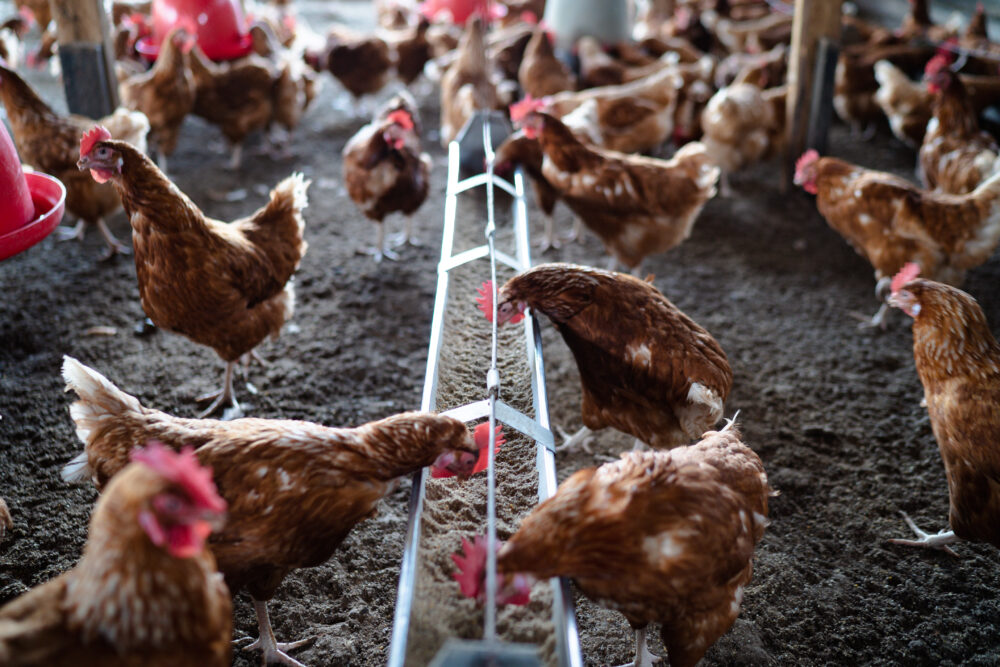Kenya: Safer Poultry Production Practices

Photo Credit: FSIL/Far on Foot-Davina Leonard
STATUS: COMPLETED
Project Description
Poultry is an important dietary component for poor and middle-class Kenyan households and a key source of revenue for women and youth. In this project led by Barbara Kowalcyk at the Ohio State University, the team focused on systems-based, risk-informed approaches to food safety on small-scale poultry farms. Researchers collaborated with stakeholders using risk ranking to identify food safety priorities for the poultry value chain and conducted a review of gender roles in poultry production and the food safety hazards faced by men, women, and youth.
Co-PIs: Robert Onsare, Kathleen Colverson, Arie Havelaar, Sanja Ilic, Catherine Kunyanga, Kara Morgan, Robert Scharff, and Ahmed Yousef

